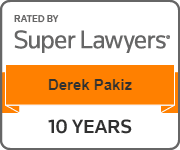Our list of the most important personal injury questions
We often hear people talk about personal injury from a legal perspective and they have many questions. In this article, we aim to answer just what is personal injury, and answer the most common questions that people have.
What is Personal Injury?
Personal Injury means any way that a person is injured by the wrongful acts of someone else. Personal injury can include all sorts of injury accidents, everything from car collisions to plane crashes.
It includes injuries on other people’s property, such as falls, electrocution, being struck by a falling object, dog bites etc. And, of course, intentional acts where someone harms you on purpose.
Do I Have To Pay For My Initial Meeting With My Lawyers?
All experienced, reputable personal injury attorneys offer 100% free initial consultations. So the answer is: No, you do not and should not pay for your initial meeting with a lawyer. In fact, in most cases you do not need to pay anything until and unless the opposing party or their insurance company agrees to pay you or until a court orders them to pay you. This is because personal injury attorneys work on a contingency-fee basis – they don’t get paid unless they win or settle your case.
How to win a personal injury case
The way to win a personal injury case is to take photos or videos and keep careful records of everything related to your injuries and damages. Hire an experienced personal injury attorney with whom you feel truly comfortable. Listen to your attorney’s advice and be completely honest with your attorney because you are a team. Take care of your medical condition and of yourself. And avoid talking to others, including the insurance companies, about your case.
What is negligence
When people say “negligent” in everyday life, they mean acting carelessly. But the legal definition of “negligence” is more complex. In most states, including California, there are elements you must prove to show that someone is “negligent.” Generally, these are:
- The defendant owed you a duty of reasonable care.
- The defendant breached that duty.
- The breach was a substantial factor in causing you harm.
Proving each of these elements is critical to your personal injury case. Having an experienced attorney on your side will give you the best chance of recovering the most money for your injuries.
What are damages
In everyday parlance someone might say that their car was “damaged” in a car accident. But the legal term, “damages,” is much more specific. “Damages,” as a legal term, means a remedy in the form of monetary compensation to the harmed party.
Generally, there are two broad types of damages: compensatory and punitive. Compensatory damages do just what it sounds like: compensates you for some harm or loss. For example, you might recover compensatory damages for the cost of repairing your house if an at-fault driver crashes into your house.
Punitive damages, which are much rarer, are designed to deter intentional conduct that is fraudulent, malicious or oppressive. For example, someone who intentionally drives into your house with a reckless disregard for your life, could be liable for punitive damages. However, punitive damages are only awarded when there is evidence that the defendant can pay them.
What is the “Burden of Proof” in a California Personal Injury Case
Burden of proof broadly refers to the obligation of a party to establish by evidence a required degree of belief concerning a fact in the mind of the jury or judge.
In personal injury cases, which are litigated in civil court, the burden of proof is “preponderance of the evidence.” This is evidence that shows that it is more likely than not that a fact is true.
As you may know from watching TV, the highest burden of proof is required in criminal courts – “beyond a reasonable doubt.”
Is there a minimum personal injury compensation amount?
The answer is no. There is no minimum amount that a plaintiff in a personal injury case must be paid. Of course, cases that are worth very little would probably not even be filed in the first place. In some rare cases, a judge might rule that the settlement amount must be increased in order to fairly compensate the plaintiff(s). This usually occurs in lawsuits involving a group or class of plaintiffs. This actually occurred when a federal judge rejected the initial proposed settlement for the Rescue Workers from Ground Zero site. The judge only approved the settlement when the final amount was increased by 8% to $712 million.
Is there a maximum personal injury compensation amount?
Not for economic damages. There is no California or federal law (or law in any other state as far as we know) that sets a ceiling or maximum on what a plaintiff can recover for “economic damages” in a personal injury lawsuit. This includes compensation for medical costs, lost wages, etc.
However, some states have set a maximum or cap on the amount of “non-economic damages” that a plaintiff can recover. Non-economic damages include “pain and suffering” or “loss of enjoyment of life.” As you can imagine, these tend to be subjective.
About half of the states (including California) have also capped non-economic damages in medical malpractice cases. In California, the cap for non-economic damages in med-mal cases is $250,000. But exceptions could permit a higher damage cap or eliminate the cap altogether in certain kinds of cases.
What types of evidence is considered in a personal injury case?
Accident or police reports could be useful in a personal injury case. An accident report created by the police will include a description of what happened, where, and when as well as witnesses’ names, phone numbers, and addresses.
Photographs and videos in personal injury cases are usually of the accident scene and the vehicles and people involved, photos and videos. They tend to come from the police, witnesses, and traffic or security cameras in the area.
Medical records and bills are crucial pieces of evidence in a personal injury case because they document how you have been injured and the extent of those injuries. That’s why you need to keep careful records of your medical visits, bills, correspondence, and so on. It never hurts to make copies!
Employment records in personal injury cases can be important for showing damages like loss of wages or reduced earning potential. In the case of an at-fault driver with a history of driving dangerously during work, his or her employment records may even become relevant.
Insurance policies or records must be reviewed to determine whether and how much your insurance company or the at-fault person’s insurance company should pay out. Your attorney will usually obtain this directly from the insurer.
Expert witness reports are often critical in personal injury cases. For example, experts may need to be hired when there is a dispute over accident reconstruction. Medical experts are also hired when there is a dispute over the extent of bodily injuries.
What is the California statute of limitations for personal injury accidents?
A statute of limitations is the deadline for filing a lawsuit. Most lawsuits MUST be filed within a certain amount of time. Once the statute of limitations on a case “runs out” or “expires,” you will lose your right to seek damages for your injuries, no matter how severe they might be, and no matter how clear the defendant’s liability.
In California, personal injury claims must be filed within two years from the injury. Example: you are in a car accident on January 1, 2022, that injures you. You must file a lawsuit on or before January 1, 2024, or your injury claims will be dismissed even if your case is a “slam dunk” in every other way.
If the injury was not discovered right away, then the statute of limitations is 1 year from the date the injury was discovered. Example: you undergo a surgery on January 1, 2022, but do not discover that the procedure was performed poorly and injured you until January 1, 2024, when another doctor informs you. You then have 1 year from the date of this discovery, or until January, 2025, to file suit.
As you can see, the consequences of letting the statute of limitations expire are dire. This is just one reason why injury victims are urged to seek out experienced attorneys as soon as possible.
Is it possible to sue a government entity such as the police?
Yes, it is possible to sue a government entity such as the police, a school district, or even a city. However, lawsuits against government entities are extremely complex and generally require that the plaintiff do something before filing suit called “exhaust administrative remedies,” which usually involves giving advance notice by a certain deadline to the government entity so that it can evaluate your claim and resolve it outside of court. In California, the Government Tort Claims Act contains a multitude of complicated requirements about giving notice to the correct government entity before suing. If proper notice is not given, your lawsuit may be dismissed regardless of its merit. Therefore it is highly recommended that you consult with an experienced attorney as soon as possible after your injury occurs.
What is a “release” in personal injury?
Before an insurance company or defendant actually pays out on any insurance claim or lawsuit settlement for a personal injury, you will be required to sign a “release.” This will usually be contained within a settlement agreement. The “release” eliminates all claims that you have against the parties released. Release agreements always contain language that prevent you from claiming any future or surprise medical expenses, whether you know about them now or not. This can be really unfortunate if you do not know the full scope of your injuries at the time the release agreement is signed. Therefore it is highly advisable that you receive a full medical checkup and consult with an experienced personal injury attorney before signing any release.
What to do if you are the one being sued?
If you are the one being sued, then you are the “defendant.” Although no one likes being sued and the prospect can be downright scary, doing nothing and hoping it goes away is probably the worst thing you could do. In California (and all other states), you only have a limited number of days to respond to the lawsuit before a default against you could be entered. Try to make appointments with several attorneys and ask them lots of questions. How the attorney treats you and how they answer your questions will help you decide which attorney might be the best fit for you.
When someone’s injured in an accident, what’s the first thing they should do?
The first thing to do is get medical attention right away. No lawyer and no lawsuit can ever lessen your pain or heal your injuries. That’s why you need to get the medical attention that you require. If you have any doubt at all about the seriousness of your injury, go to the hospital right away.
If you’re sure that your condition can wait, then your family doctor who you’ve trusted with you and your family’s health is probably a good place to start.
What should you do if you don’t feel you’re getting all the medical care you need after an injury?
Sometimes, especially if you have very serious or unusual injuries, you may require a referral to a specialist. An experienced attorney should be able to help you with this.
Likewise, if you feel you’re not getting the care and treatment quickly enough through your own doctors, or if you don’t have your own doctors, an experienced attorney should be able to help you with these problems as well
What is the purpose of a personal injury lawsuit?
After you protect your health and wellbeing, you need to make sure that you’ve protected your legal rights.
When you’ve been injured by someone else’s careless or wrongful acts, the law says you have a right to receive full and fair compensation for all of your harms and losses. This can come in the form of a personal injury lawsuit
Oftentimes the wrongdoer or their insurance company will try and take advantage of you when you’re at your most vulnerable and try and lessen or eliminate your right to compensation.
Injured people are generally good trusting individuals. And they think if they’re helpful to the insurance company, that insurance company will be helpful to them. But this is far from being true.
Multi-billion dollar insurance companies have one interest and one interest only: to keep as much of their money as they possibly can, and to pay to you as little as possible. In fact, the only reason that they’re talking to you is to try and get information that can weaken or ruin your personal injury case.
What to do instead: If you already have an attorney, give them your attorney’s name and telephone number and hang up, period. If you haven’t found an attorney yet, ask the insurance company to put their questions to you in writing. That way, when you find the right attorney, you can turn those questions over to them and they can deal with it from there.
Is it important for an injured person to get an attorney right away after an accident?
Absolutely. And that attorney should be experienced and specialize in personal injury. He or she can then take care of other worries or concerns and allow you to focus on getting well.
What are some of the ways that an attorney can help with?
Your attorney can prevent the insurance company from harassing you. So you’ll be free of their letters and phone calls. Also, as I mentioned earlier, that attorney can make sure you get all of the medical care and attention that you require. And an experienced attorney will want to start right away, gathering evidence, interviewing witnesses and building your case.
How long will it take me to win my personal injury case?
That’s a great question. And one that requires us to gaze a little bit into a crystal ball. You see an at-fault party and their insurance company are never obligated to pay you until a court judgment or settlement agreement states that they are required to do so.
If you and the at-fault party agree to settle your claims before trial, then your case will end sooner than if it has to go to trial. A highly disputed case with high dollar figure claims, however, is more likely to go to trial. Due to the backlog in the court system, it can often take 2 or more years for cases to end up in trial. Of course, an experienced personal injury attorney will fight for you to get your payout sooner rather than later.
What’s the likelihood of having to go to trial for a personal injury case?
In the hands of a good personal injury attorney, the chances are excellent that your case can be settled before trial, which means that you would receive a payout to compensate you for your injuries without having to undergo a trial in court. This depends upon various factors, such as how the accident happened, the extent of your injury, who is the at-fault party, etc.
Your case can often be won soon after your medical care and treatment has finished and your condition has stabilized. Other times, especially if your injuries are severe or catastrophic, there’s a good chance your case may go to court.
In these instances, an experienced attorney can maximize the chances that your case can settle for full and fair compensation.
What if the other side refuses to settle and you have to bring your case to trial?
While most cases do settle due to the expense and unpredictability of trials, it’s always best to prepare a case as though it is going to trial. An experienced personal injury attorney will do just that – litigate your case all the way through with careful attention to details.
Having an experienced trial attorney with a proven track record of success increases your chances that that jury will find in your favor and that you will receive full and fair compensation from the insurance company or wrongdoer.










